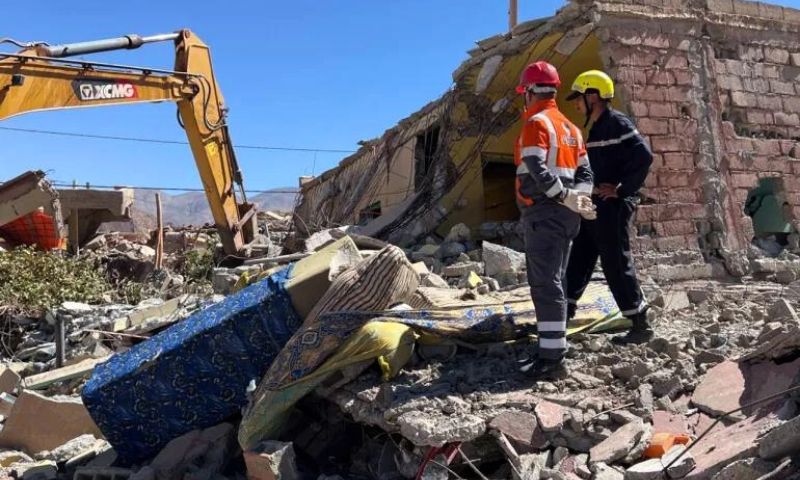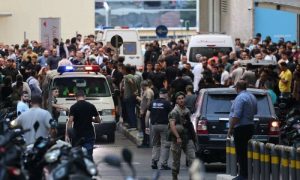RABAT: Hopes of finding survivors amidst the earthquake’s rubble are fading in Morocco, particularly in mountain villages where traditional mud brick houses have crumbled to earthen rubble without leaving air pockets.
The death toll has climbed to nearly 3,000 in the wake of the catastrophic earthquake, and many remain missing, particularly in remote villages that have been severely impacted. Some villagers have been left without power or telephone service since the earthquake struck, compelling them to undertake their own rescue efforts, including the retrieval of bodies from their crushed homes.
Several villagers have had no electricity, telephone or internet service since the earthquake struck and the villagers had to rescue loved ones and pull out dead bodies buried under their destroyed homes without any assistance.
Rescue missions have been ongoing around the clock, with volunteers and organizations working tirelessly to search for survivors. However, the situation remains dire, especially in remote areas that are difficult to access.
Abdel Aouragh, a driver, expressed concerns that the earthquake would further empty mountain villages, as more people may relocate to cities like Marrakesh. New building regulations are also expected to reshape the traditional way of life in these communities.
Rescue Efforts in Quake-hit Morocco
As rescue efforts continue, organizations are collecting donations to accelerate lifesaving endeavors. Many Moroccan troops, search-and-rescue workers, and medical personnel are engaged in the search for survivors and providing aid to those in need.
Despite challenges in reaching some remote villages, organizations and volunteers are mobilizing to provide essential supplies, including food, water, clothes, and blankets to those affected.
The earthquake’s epicenter was approximately 72 kilometers (45 miles) southwest of Marrakech, causing damage to historical buildings in the old city and impacting the 12th-century Tinmel Mosque. Modern parts of Marrakech largely escaped unscathed.
Morocco has accepted aid offers from Spain, Britain, the United Arab Emirates, and Qatar, with Algeria also allocating resources for assistance. The Moroccan government is taking a cautious approach in accepting relief offers from other countries, with a focus on search-and-rescue operations.
Caroline Holt of the International Federation of the Red Cross and Red Crescent Societies (IFRC) defended Morocco’s decisions, emphasizing the need for immediate action to save lives.
While international aid efforts are underway, frustration has arisen among some organizations that offered assistance but were not granted access to help. Arnaud Fraisse of Secouristes Sans Frontieres expressed disappointment at the delayed response and the urgent need for lifesaving efforts.























